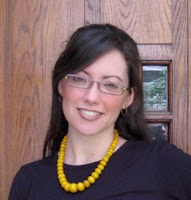On Thursday, November 1, 2012, Dr. Deborah Gray White of Rutgers University was supposed to deliver her lecture, “Brown Sugar Melts: African American Women at the Turn of the Millennium,” which would have also been the keynote lecture for the 14th Annual Graduate Conference in African American History. However, Dr. White canceled on short notice after becoming stranded in New Jersey due to Hurricane Sandy.
But all was not lost! Dr. Anne Twitty, Assistant Professor of History at the University of Mississippi, accepted the task of delivering a keynote lecture to a big audience with about twenty-four hours notice. She gave a captivating lecture entitled, “Promiscuous Legality: Slavery and Legal Culture in the American Confluence.” The audience, including President of the University Dr. Shirley Raines, almost packed the UC Theatre. Dr. Twitty thanked the audience for not “running for the doors” when they heard that she would speak instead of Dr. White.
Dr. Twitty spoke on slavery and legal culture in a region she called the “American Confluence,” an area consisting of the Northwest Territory. Before she continued on to the central subject of the lecture, she treated us to “candy before dinner.” To the audience’s surprise, Dr. Twitty played the entire second verse of the clean version of Jay Z’s popular hit “99 Problems,” and tied the mega-hit into her lecture. She declared that Jay Z’s song tells us so much about legal culture, and we could apply what we learned from the song to other historical occurrences, specifically the way slaves and slaveholders used the law. Dr. Twitty said that the song is a revelation since it focuses on legal knowledge and how individuals develop and use legal knowledge, “in order to manipulate the law for their own gain.” She said that in our daily lives, we use the law, and the law structures our behavior.
Dr. Twitty then gave us the essence of the lecture after we enjoyed our “candy.” She enlightened us on slavery and the law before the infamous Dred Scott Decision of 1857, which declared that slaves were not citizens of the United States, and that all individuals of African descent living in the country at that time were not entitled to the protection of the Constitution. Therefore, no slaves could sue in Federal courts in the United States. Dred Scott petitioned for his freedom in the St. Louis Circuit Court, which had become home to the largest collection of “freedom suits” by the time of the Supreme Court’s landmark decision in 1857. In fact, for centuries before the ruling, according to Dr. Twitty, slaves had the right to petition the court for their freedom, which was a right that derived from early modern English law.
Dr. Twitty related that the collection of freedom suits consisted of either petitions or formal written requests of nearly 300 slaves and more than 1,000 depositions and affidavits of those who owned, sold, hired, or worked among the slaves. She explained how the freedom suits complicate our understanding of slavery and legal culture. Freedom suits, she said, also provide details about the lives of slaves; many of the slaves who filed a freedom suit were urban slaves who had travelled a long way to St. Louis, which she referred to as the center of the American Confluence. She said that because of St. Louis’s ideal location, the St. Louis Circuit Court was an obvious site for the slaves’ legal battles; many slaves who had petitioned for their freedom in St. Louis had already spent a large amount of time in the Northwest Territory and therefore had the legal basis to file a freedom suit.
Dr. Twitty said that the collection of freedom suits also display that slaves and small slave owners learned about the law through their experience with slavery and had a keen understating of the law, specifically the laws that shaped their lives. She described the history of Maria Whiten, a female slave who filed a petition for her freedom in the St. Louis Circuit Court in 1829. Whiten and other petitioners had a savvy grasp of the law and were relatively informed of the state statues that allowed them to petition for their freedom. Dr. Twitty said that although the majority of the slaves were illiterate and had no legal education, they had a complex understanding of the law and used their knowledge to earn their freedom. Dr. Twitty said that an analysis of the hundreds of freedom suits showcases “the world before Dred Scott,” a world that was shaped by the law and where slaves and slave owners attempted to manipulated the law for their own gain.
Following the lecture, Dr. Twitty answered questions from audience members in a succinct but informative question and answer session. Based on the questions asked (and the amount of seats still occupied once the lecture ended), the audience apparently enjoyed Dr. Twitty’s brilliant lecture.




No comments:
Post a Comment